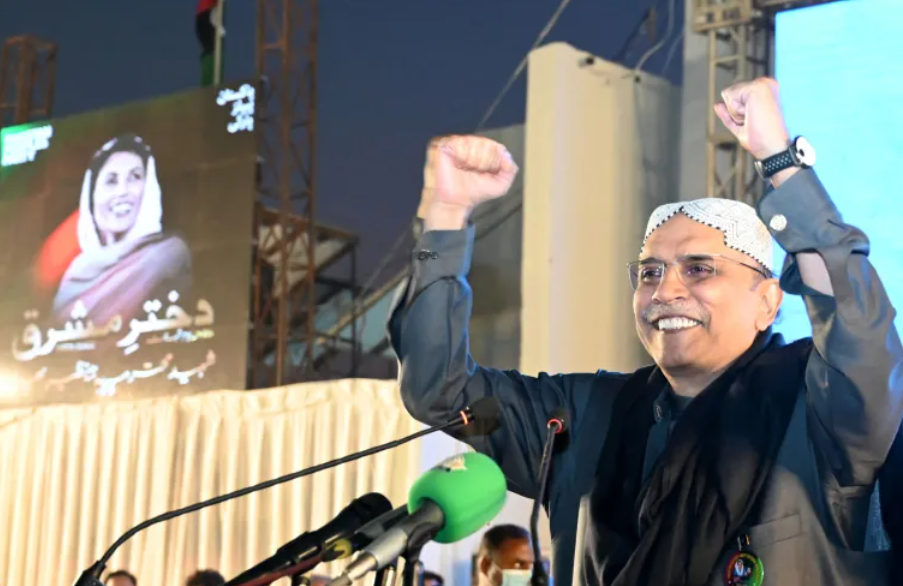Pakistan Elected Asif Ali Zardari as President
With the backing of the ruling coalition, Asif Ali Zardari. The co-chairperson of the Pakistan Peoples Party, was re-elected to a second term. As president of Pakistan by the parliament and regional assemblies.
After tallying the votes cast by senators, national MPs. And provincial MPs, the Election Commission of Pakistan announced on Saturday. That Zardari had received 411 votes and his opponent, Mehmood Khan Achakzai. Who is supported by the party of the former prime minister Imran Khan. Who is currently imprisoned, had received 181 votes.
Zardari, the widower of Pakistan’s first female leader. Benazir Bhutto, was elected to the mostly ceremonial position by the PPP. Which partnered with the Pakistan Muslim League-Nawaz (PMLN) party. Following the country’s allegedly rigged elections on February 8.
It is anticipated that Asif Ali Zardari will take the oath of office on Sunday.
Shehbaz Sharif of the PMLN took the oath of office as prime minister. Earlier this week on Monday, in accordance with the conditions of the coalition agreement. Which also involves a number of smaller parties.
Khan was imprisoned and barred from running in the election. Members of his Pakistan Tehreek-e-Insaf (PTI) party were made to run. As independents after the party was the target of censorship and arrests.
The PTI claimed that nationwide rigging that prevented them. From winning was concealed by a mobile internet blackout on election day and a delay in the results. Allegations of vote tampering marred the elections as well.
Despite winning more seats than any other party in the previous month. The PTI was unable to secure the necessary majority to govern, which allowed the PMLN and PPP to form an alliance.
Zardari’s election, according to PTI chairman and attorney Gohar Ali Khan, was “unconstitutional.”
The party is currently battling for the assembly’s seats designated for minorities and women.
Asif Ali Zardari, 68 was elected president in 2008.
As a result of a sympathy vote cast in the wake of Benazir Bhutto’s gun and bomb assassination during her reelection campaign. He reduced presidential powers while serving as president, a position he retained until 2013.
Formerly strong, Pakistan’s presidency was reduced. To that of a figurehead in 2010 following a constitutional amendment made by Zardari.
Threats from the Taliban and strained ties with the military. Following the US special forces’ 2011 operation in Pakistan to kill Osama Bin Laden. The leader of al-Qaeda, were among the difficulties he had to deal with during his term.
Despite being accused of corruption and serving more than 11 years in prison. Zardari has recovered from his numerous scandals.
He had a talent for “artful dodging” or “manoeuvring himself out of the tight spots he gets himself into,” according to the New York Times back in 2009.


Comments are closed, but trackbacks and pingbacks are open.